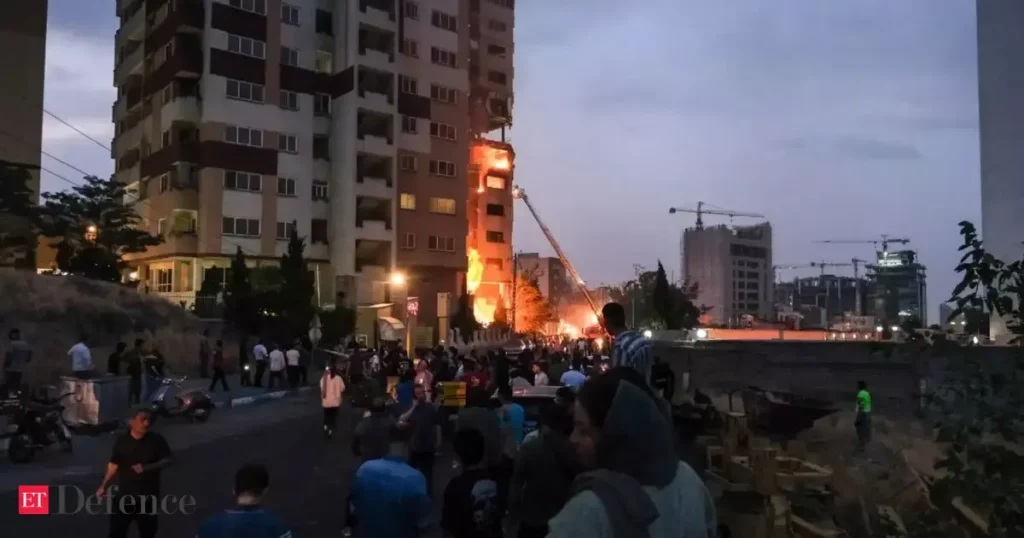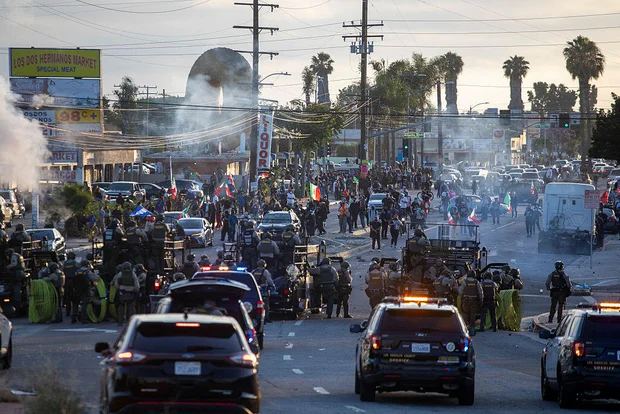Introduction
The world watches with bated breath as tensions between Israel and Iran explode into a dangerous confrontation, raising fears of a wider conflict in the Middle East. Meanwhile, across the Atlantic, political unrest brews in the United States as mass protests erupt against former President Donald Trump’s controversial military parade under the banner of “No Kings.”
This dual crisis has sent shockwaves through international diplomacy, financial markets, and public discourse, highlighting the fragile state of global peace and democracy.
The Israel-Iran Confrontation: A New Phase of Escalation
On June 13, 2025, Israel launched its most extensive military operation against Iran in recent history, targeting suspected nuclear and military facilities. The strikes, carried out via air and cyber warfare, reportedly destroyed critical infrastructure and led to dozens of casualties.
Iran retaliated almost immediately with a barrage of missile and drone attacks targeting Israeli cities, including Tel Aviv and Jerusalem. The Israeli Defense Forces (IDF) reported successfully intercepting the majority of the projectiles, but damage and civilian injuries were still recorded.
Regional Fallout
The escalation has raised alarms across the region. Lebanon’s Hezbollah has threatened to open a northern front, and Gulf nations have issued emergency alerts. Saudi Arabia and the United Arab Emirates have called for an emergency meeting of the Arab League.


Global Response and Diplomatic Implications
World leaders, including the United Nations Secretary-General, have condemned the violence and called for an immediate ceasefire. The European Union and China have urged both parties to return to the negotiation table, emphasizing the risk of a full-scale war.
President Joe Biden has reportedly offered to mediate, although political tensions at home have complicated his foreign policy approach.
Impact on Global Markets
Oil prices surged above $100 per barrel, and global equity markets dipped following the news. Investors turned to traditional safe-haven assets like gold, which saw a notable rise in value.

Unrest in the United States: The ‘No Kings’ Movement
As the Middle East simmered, the United States faced internal turmoil. In Washington, D.C., former President Trump organized a massive military parade, showcasing U.S. military strength. The event, seen by critics as authoritarian, prompted mass protests under the slogan “No Kings.”
Thousands of demonstrators gathered near the National Mall, waving signs that read “Democracy, Not Dynasty” and chanting slogans against political elitism and militarism.
A Symbol of Deeper Divides
The protests reflect a broader dissatisfaction among Americans with the political establishment. The demonstration was largely peaceful, but clashes between protesters and law enforcement were reported in several cities.
Trump defended the parade, stating it was a celebration of American might and unity. However, critics argue it sends the wrong message during a time of heightened global tensions.
Dual Crisis: A Turning Point in Global Politics?
The convergence of international conflict and domestic unrest underscores a period of global instability. Analysts believe the current crises may mark a turning point in the post-COVID international order.
Dr. Lina Farouk, a Middle East expert at the London School of Economics, stated: “This isn’t just about Iran and Israel. It’s about the fragility of regional peace and the limits of deterrence.”
Meanwhile, political commentator Sarah Klein noted: “What we’re seeing in the U.S. is not just protest against a parade. It’s a rejection of political theatrics in a time that demands real leadership.”
Conclusion: What Comes Next?
With Israel and Iran teetering on the brink of a larger conflict and civil unrest growing in the U.S., the international community faces a critical juncture. The coming days will be decisive. Will diplomacy prevail, or will the world slide deeper into chaos?
What is certain is that the ripple effects of these events will be felt across borders, economies, and societies. As headlines continue to develop, all eyes remain on the Middle East and Washington.


